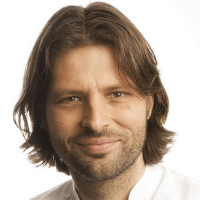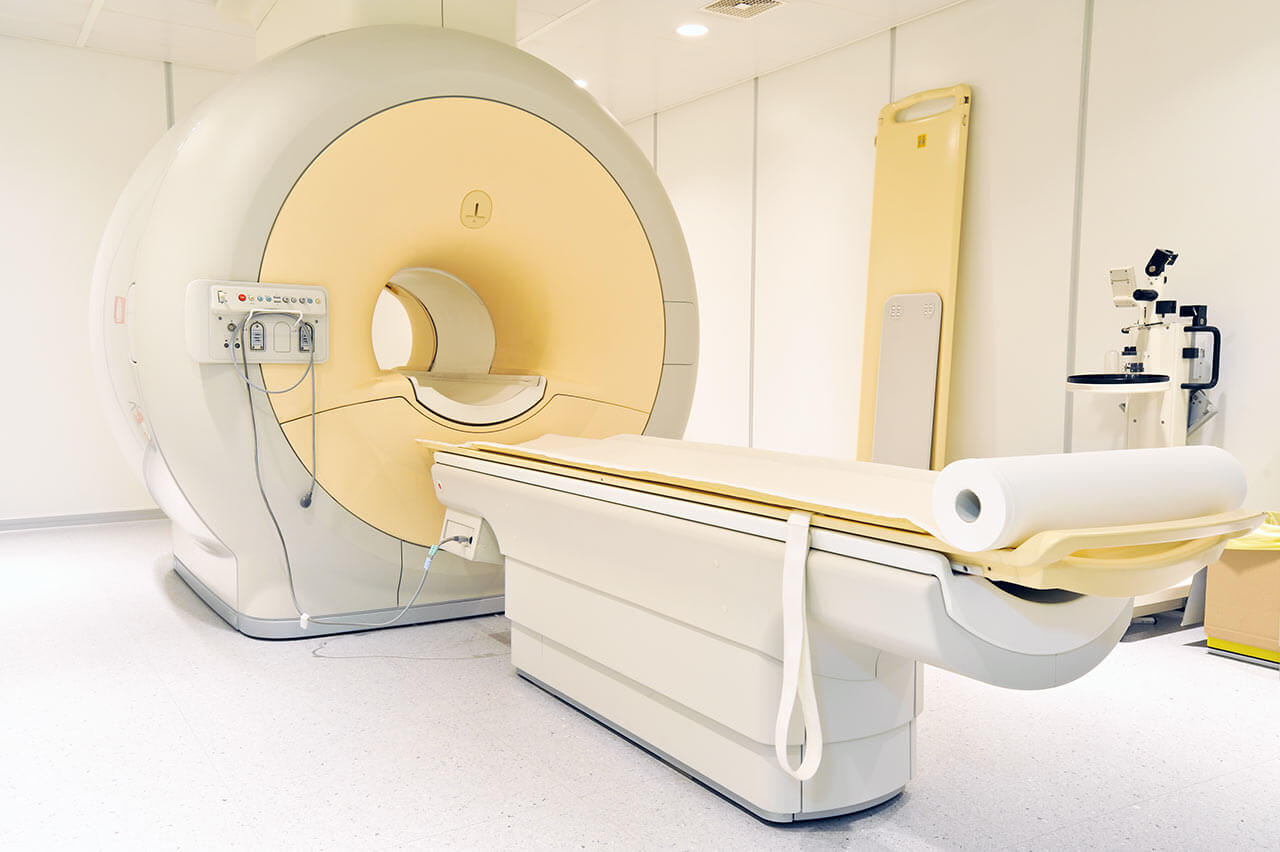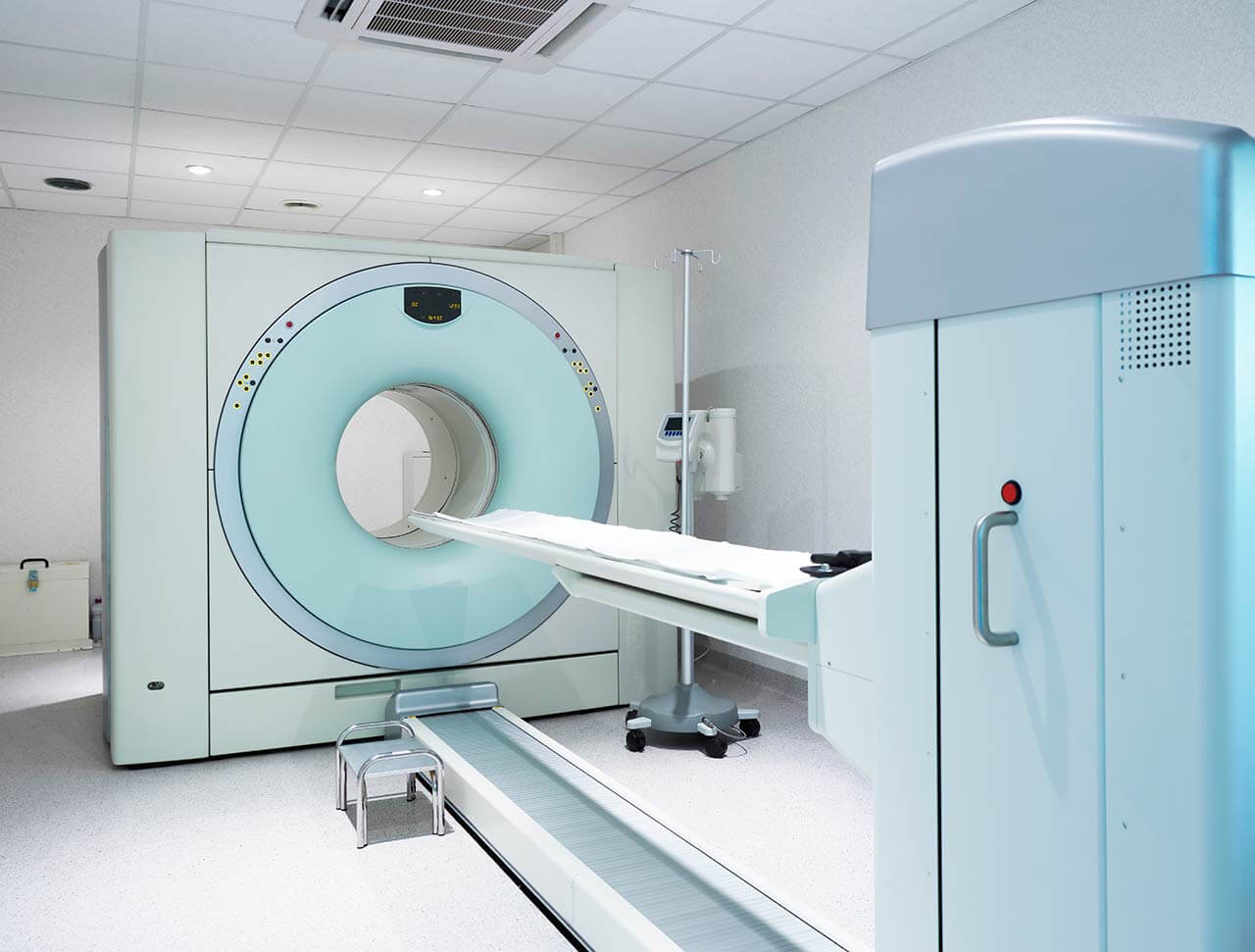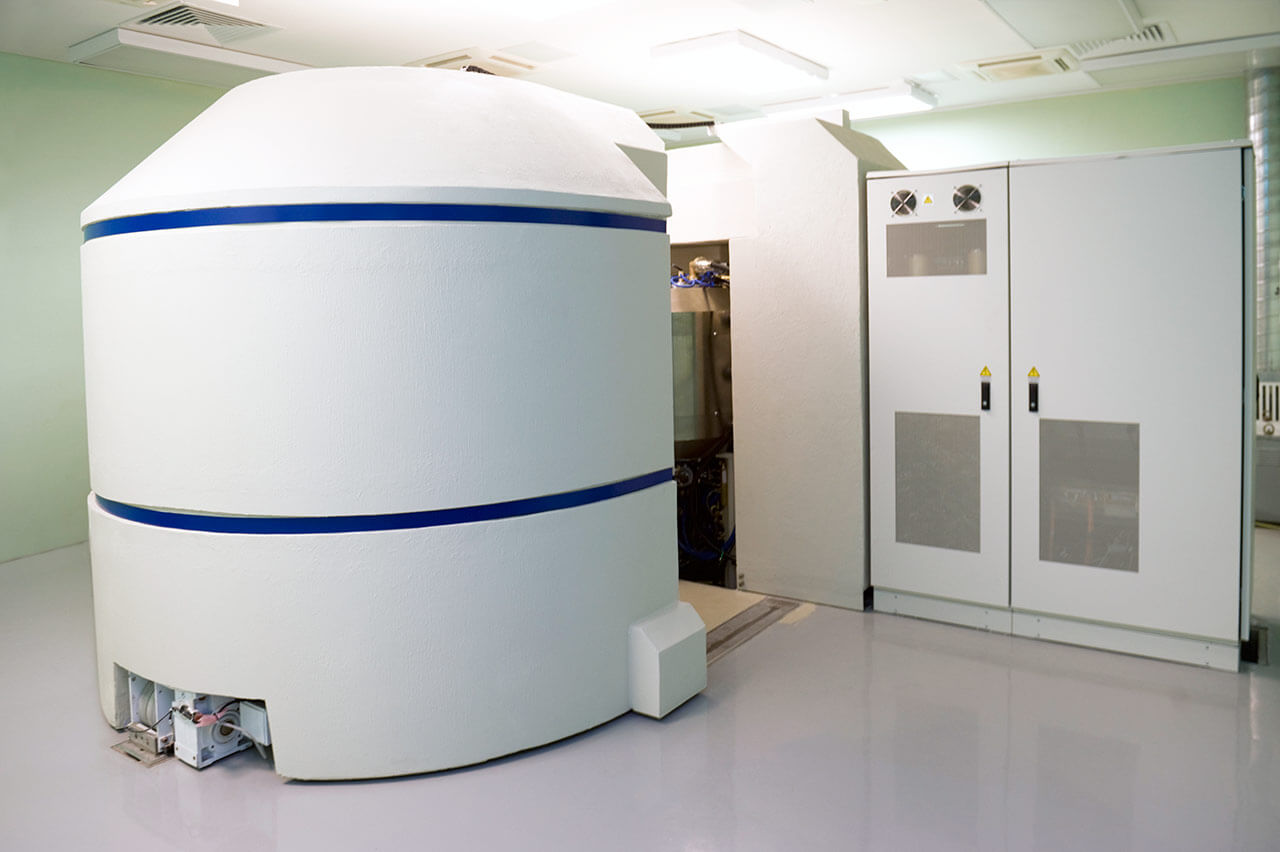
About the Department of Nuclear Medicine at Central Clinic Bad Berka
The Department of Nuclear Medicine at the Central Clinic Bad Berka offers the full range of highly accurate diagnostics and modern therapy using radioactive substances. The experienced specialists of the department carry out scintigraphy of various organs, including the innovative Datscan method for the diagnostics of Parkinson's disease, a combined PET-CT study to examine patients with suspected cancer pathology or cardiological diseases, radionuclide ventriculography to assess cardiac pump function at rest and during exercise. The department is also particularly competent in certain types of therapies, in particular radiosynoviortesis and Xofigo® therapy. The department is headed by Dr. med. Franz Christoph Robiller.
The department has cutting-edge equipment for a combined PET-CT study, including PET-CT using fluorodeoxyglucose (FDG). FDG PET-CT is an excellent method, which helps to accurately detect cancer. The PET-CT scan procedure begins with the intravenous administration of an appropriate radiopharmaceutical. The scanning itself will be carried out approximately an hour after drug administration. During the first 20 minutes after the injection, it is important to relax and not to talk, or otherwise muscle work can lead to undesirable accumulation of the drug in the muscles, which can affect the accuracy of the result. After 20 minutes in a relaxed state, the patient takes an additional drug to contrast the intestines. The scanning itself takes about 20 minutes.
Scintigraphy is also one of the key diagnostic studies available in the department. This type of study is used to assess the function of the thyroid gland and parathyroid glands, the condition of the skeletal bones, myocardium, lungs, kidneys and sentinel lymph nodes. Scintigraphy allows the doctor to not only see the structure of the organs, but also visually assess their functioning. Thus, this type of study is very informative and enables the specialists of the department to choose the optimal treatment tactics.
In addition, the department specializes in therapy with the use of radioactive substances. Radiosynoviorthesis is an effective technique for the treatment of inflammatory joint diseases. This procedure is most often used to alleviate the symptoms of rheumatoid arthritis, seronegative spondyloarthropathy, arthrosis, as well as persistent pain after arthroscopic synovectomy. The procedure begins with the application of a special splint on the joint, after which it is punctured under strictly aseptic conditions (if necessary, after preliminary local anesthesia). The next step of the procedure is the administration of a contrast agent and the control of the position of the needle with the help of X-ray (except for knee radiosynoviorthesis). As soon as the needle takes the necessary position in the joint, the doctor will introduce a radiopharmaceutical.
Another department’s therapeutic offer is Xofigo® therapy. This type of treatment is used in adult patients with metastatic castration-resistant prostate cancer. The therapy involves 6 injections of a radiopharmaceutical with an interval of 4 weeks. The drug is administered intravenously.
The range of the department’s medical services includes:
- Diagnostics
- Combined PET-CT method, including with the use of fluorodeoxyglucose (FDG)
- Thyroid diagnostics
- Ultrasound scans
- Thyroid scintigraphy
- Radioactive iodine uptake test (it is usually performed before radioiodine therapy)
- Tumor scintigraphy in the presence of «cold» thyroid nodules
- Thyroid fine needle aspiration biopsy
- Skeletal scintigraphy
- Antigranulocyte scintigraphy for the diagnostics of inflammatory processes (for example, in case of suspected artificial joint infection)
- Myocardial scintigraphy
- Radionuclide ventriculography to determine the heart pumping function at rest and during exercise
- Perfusion and ventilation lung scintigraphy
- Kidney scintigraphy
- Sentinel lymph node scintigraphy
- Datscan scintigraphy for the differential diagnostics of Parkinson's disease and essential tremor
- Parathyroid scintigraphy
- Therapy
- Radiosynoviorthesis for the treatment of inflammatory joint diseases
- Xofigo® therapy for metastatic castration-resistant prostate cancer
- Other diagnostic and treatment methods
Curriculum vitae
Dr. med. Franz Christoph Robiller studied Medicine at the University of Jena. He had highly specialized training in Erfurt, Jena and in the Central Clinic Bad Berka of the RHÖN-KLINIKUM AG. Dr. Robiller was the Leading Senior Physician in the Department of Nuclear Medicine at the University Hospital Jena. One of the main tasks of the doctor’s daily work is cancer diagnostics using PET-CT. Another priority is scintigraphy of various organs. In the field of therapeutic options, the focus is on radiosynoviortesis to relieve joint pain and Xofigo® therapy to treat prostate cancer with bone metastases.
Photo of the doctor: (c) Zentralklinik Bad Berka GmbH




